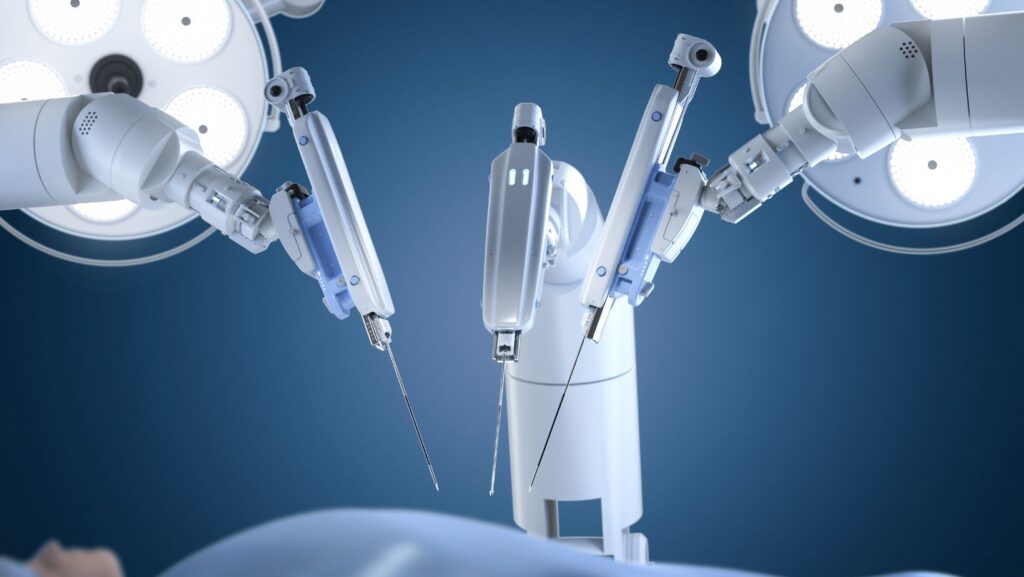A New Era in Surgery — and Why Questions Still Matter
Robotic-assisted surgery has transformed how many operations are performed today — from prostatectomies and hysterectomies to heart valve repair and hernia repairs. Smaller incisions, enhanced precision, and faster recovery times are often cited as benefits.
But “robotic” doesn’t mean “automatic,” and the success of this technology depends on people — the surgeon at the console, the team in the operating room, and the system behind them. Before choosing robotic surgery, especially in a private hospital, it’s essential to ask the right questions. Doing so empowers you to make informed, confident decisions about your body and your care.
Here are the top 10 questions to guide that conversation — with context, expert insight, and practical advice woven in.
1. Am I a good candidate for robotic surgery?
Robotic systems can enhance precision, but not every patient or every condition is suited to this technique. Ask your doctor how your health factors — like body weight, past surgeries, or heart and lung function — might affect your candidacy.
For some procedures (like urologic or gynecologic surgeries), robotic systems can offer improved recovery and reduced scarring. For others, the difference compared to standard laparoscopy may be minimal. A candid conversation about benefits, risks, and alternatives will help you weigh your options wisely
2. How experienced is my surgeon with robotic procedures?
Surgeon experience is one of the strongest predictors of outcomes. Research shows that complication rates decrease significantly once a surgeon has performed a certain volume of robotic procedures — often around 20–50 cases per specific operation.
Ask your surgeon directly:
- How many robotic surgeries have you performed in total?
- How many of this exact procedure in the past year?
- What’s your rate of conversion to open surgery?
Reputable hospitals encourage this transparency. A confident and qualified surgeon will welcome your questions — not avoid them.
3. What’s the evidence that robotic surgery is better for my condition?
While robotic techniques have proven benefits for some surgeries (like prostate and colorectal procedures), the data isn’t uniform across all specialties.
A 2023 JAMA Surgery review found that robotic surgery often offers comparable outcomes to laparoscopy in many operations — but with higher costs. However, for complex or narrow anatomical spaces, the 3D vision and wristed instruments can significantly improve precision and reduce trauma.
Ask your doctor what peer-reviewed studies or hospital data support using a robot for your specific operation.
4. What type of robotic system will be used?
There are several FDA-approved robotic platforms — such as Da Vinci, Hugo RAS, and Versius — each with unique capabilities.
Inquire:
- Which system will be used, and why was it chosen?
- How often is it maintained or upgraded?
- Does the surgical team have dedicated training with this system?
Knowing the technology helps you understand its strengths and limitations.
5. How is safety ensured in a private hospital?
Private hospitals vary in resources and oversight. It’s vital to ask about their credentialing and safety policies:
- How is the robotic system sterilized between cases?
- What backup plans exist if the system fails mid-operation?
- Are critical care units or emergency teams on-site if complications arise?
In Turkey, for instance, many internationally accredited hospitals such as Liv Hospital in İstanbul emphasize stringent infection control standards and on-site intensive care units. Accreditation from organizations like Joint Commission International (JCI) signals adherence to global best practices.
6. Who will actually perform my surgery?
This question is particularly important in teaching or high-volume private hospitals. While your primary surgeon may oversee the case, sometimes assistants or trainees perform parts of the procedure.
Ask clearly:
- Who will be at the robotic console?
- Who controls the instruments and camera?
- What’s the role of assistants during surgery?
You have the right to know who will be directly responsible for your care.
7. What are the potential risks and complications
While robotic systems can reduce incision size and blood loss, no surgery is risk-free. Complications such as bleeding, infection, or injury to nearby organs can still occur.
Discuss:
- The most common complications for your operation
- The hospital’s rates of readmission or re-operation
- What happens if a conversion to open surgery becomes necessary
A transparent surgeon will also discuss long-term side effects, not just immediate risks.
8. How much does robotic surgery cost — and what’s included?
Private hospitals often charge additional fees for robotic systems due to their high equipment and maintenance costs.
Before agreeing to surgery, request a detailed cost breakdown:
- Surgeon’s and anesthesiologist’s fees
- Robotic equipment usage fee
- Hospital stay and medications
- Postoperative care and follow-up visits
If you’re traveling internationally for care, confirm what’s covered in your medical package — and whether revisions or complications are included. Comparing this to the cost of laparoscopic surgery will help you determine the true value.
9. What will recovery look like?
Recovery times vary depending on your health and the complexity of surgery. Most patients experience:
- Shorter hospital stays (often 1–2 days)
- Smaller scars
- Faster return to light activity
Ask your provider for a day-by-day recovery plan:
- When can you drive or return to work?
- What are red flags that warrant immediate attention?
- Will there be a nurse hotline or telehealth support post-surgery?
Enhanced Recovery After Surgery (ERAS) protocols, now standard in many robotic programs, aim to speed up healing while minimizing opioid use and complications.
10. How will follow-up and long-term monitoring be handled?

Post-surgical follow-up is often underestimated, yet it’s crucial for success. Ask:
- How many follow-up appointments are included?
- Who reviews your recovery data and imaging?
- What’s the process for managing late complications?
If you live abroad or far from the hospital, check if virtual follow-up options are available. Many private hospitals now offer remote consultations for international patients to reduce travel strain.
Bonus: Three More Smart Questions
If you want to go even deeper:
- Is my surgery part of a quality registry or outcomes database?
Hospitals that track outcomes over time tend to improve faster. - How long will I be under anesthesia, and who will monitor me?
Anesthesia teams are critical to robotic safety. - How does your team handle pain management after surgery?
Ask about multimodal pain relief strategies that minimize narcotics.
The Emotional and Ethical Side of Robotic Surgery
It’s easy to get caught up in the allure of technology — smaller scars, faster recovery, futuristic instruments. But every robot is only as effective as the humans guiding it.
Feeling empowered to ask these questions doesn’t make you a “difficult” patient; it makes you an informed one. Informed consent isn’t a signature on a form — it’s an ongoing conversation between you and your care team.
Take a notebook to your consultation, jot down answers, and don’t hesitate to request clarifications. If something feels unclear or rushed, pause and revisit the discussion.
The Bottom Line
Robotic surgery represents a significant advancement in medicine — one that can truly improve outcomes when used appropriately, by trained teams, in the right environment. Private hospitals often offer modern facilities and individualized attention, but transparency remains key.
The best outcomes happen when technology and humanity work together — when you, your surgeon, and the entire care team collaborate in trust, safety, and respect.
Your role as a patient isn’t passive. Ask. Listen. Reflect. The right questions can turn an intimidating process into a partnership — one built not on fear or marketing promises, but on shared commitment to your well-being.
